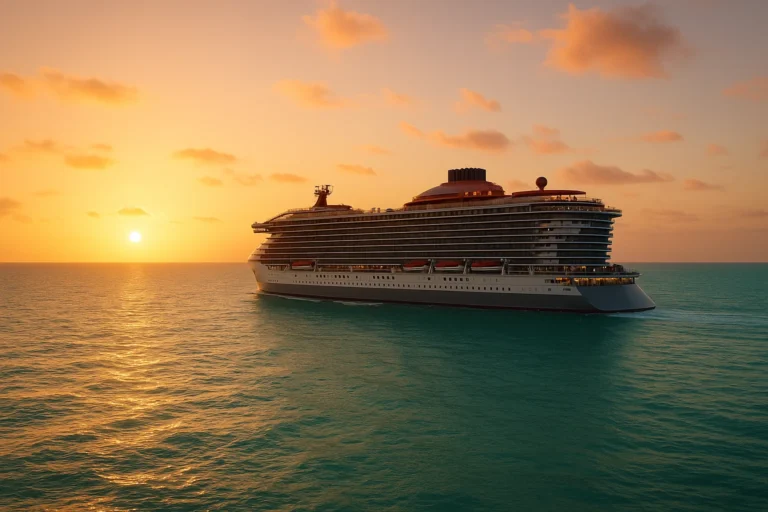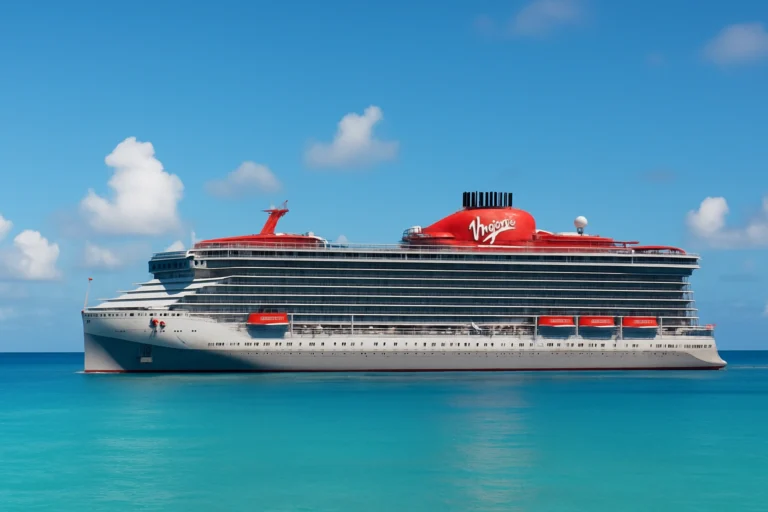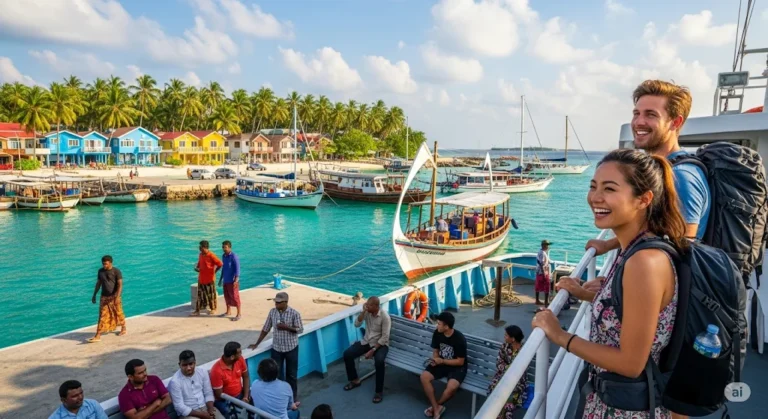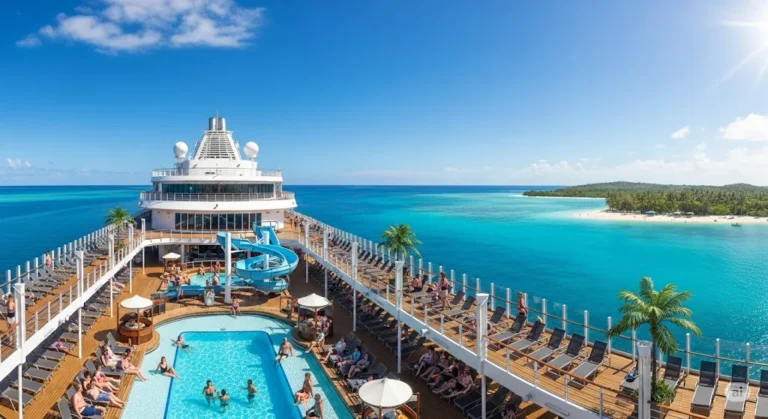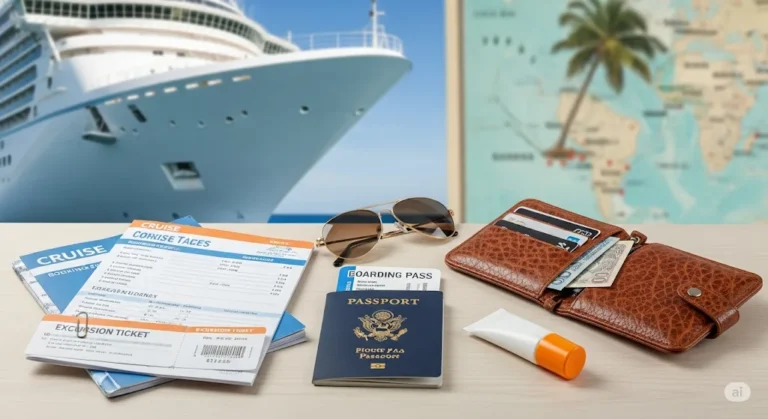Senior Cruise Guide: Accessibility & Relaxation
Senior Cruise Guide: Seamless Accessibility & Ultimate Relaxation at Sea
Embarking on a cruise offers seniors an unparalleled blend of relaxation, adventure, and carefully considered accessibility. With the right planning and knowledge, cruising can be a wonderfully seamless experience, meticulously catering to various mobility needs and comfort preferences. This comprehensive guide delves into the essentials of senior cruising, from securing accessible accommodations and understanding onboard medical services to navigating shore excursions with ease, ensuring a memorable, comfortable, and truly hassle-free journey for every senior traveler.
♿ Accessible Accommodations: Your Comfort at Sea
Ensuring your living space meets your needs is paramount for a relaxing cruise. Modern cruise ships offer a range of accessible cabins designed with comfort and convenience in mind.
🚪 Wheelchair-Friendly Cabins: Designed for Ease of Movement
Accessible cabins are specifically designed to accommodate guests using wheelchairs, scooters, or other mobility aids. These thoughtfully planned spaces prioritize ease of access and maneuverability.
✅ Key Features of Accessible Cabins
- 🚿 **Roll-in Showers and Grab Bars:** Bathrooms are equipped with roll-in showers, adjustable showerheads, and strategically placed grab bars to ensure safety and independence.
- 🚪 **Wider Doorways and Lowered Amenities:** Cabins feature wider doorways (typically 32-34 inches) for easy wheelchair access, along with lowered sinks, light switches, and closet rods.
- 🛏️ **Ample Space for Mobility Aids:** These cabins provide generous floor space, allowing for easy navigation with wheelchairs or scooters, and often include a turning radius for optimal maneuverability.
- 🔊 **Visual/Auditory Aids:** Some cabins offer visual alerts for doorbells, smoke detectors, and phone calls, and TTY devices for guests with hearing impairments.
📝 Booking Tips: How to Secure Your Accessible Cabin
Accessible cabins are a precious commodity. Follow these tips to ensure you secure the perfect space for your needs:
📌 Essential Steps to Secure an Accessible Cabin
- 📅 **Book Early:** Accessible rooms are limited in number and are exceptionally high in demand. Booking as far in advance as possible (12-18 months for popular sailings) significantly increases your chances of securing one.
- 📃 **Complete a Special Needs Form:** At the time of booking, or immediately after, always complete the cruise line’s official ‘Special Needs’ or ‘Medical Information’ form. This document allows you to detail your specific requirements, such as mobility aid dimensions, dietary restrictions, or medical equipment needs.
- 📞 **Contact the Cruise Line Directly:** Don’t hesitate to follow up with the cruise line’s accessibility department or a specialized travel agent to confirm your requests and discuss any custom needs or questions.
⚕️ Onboard Amenities for Seniors: Health, Comfort, and Enjoyment
Cruise lines are increasingly focused on providing services and activities that cater specifically to the comfort and well-being of senior guests.
🏥 Medical Services: Health and Safety Onboard
Peace of mind comes with knowing medical assistance is readily available should you need it.
🩺 Ensuring Your Health and Safety Onboard
- 🕒 **24/7 Medical Staff Availability:** All major cruise ships are equipped with a medical center, staffed by licensed doctors and nurses who are available around the clock for emergencies and clinic hours for minor ailments.
- 💊 **Emergency Medication and Care Options:** The onboard medical team can handle a range of medical situations, from common illnesses to more serious emergencies. They carry a supply of common medications.
- 🧾 **Bring All Necessary Prescriptions:** Always pack all your prescribed medications in their original containers in your carry-on luggage. Bring a copy of your prescriptions and a list of your current medications (including dosages) and any allergies.
🎨 Recreational Activities: Designed for Comfort and Enjoyment
Cruise lines offer a diverse range of activities, with many tailored to provide engaging yet comfortable experiences for seniors.
🎯 Engaging Activities Designed with Seniors in Mind
- 🧘 **Relaxing Wellness Classes:** Participate in gentle exercise programs like chair yoga, tai chi, or stretching classes, often held in serene settings.
- 💃 **Fun Group Sessions:** Engage your creativity and social side with art classes, dance lessons (often ballroom or line dancing), bridge clubs, and trivia games.
- 📚 **Enrichment Programs and Lectures:** Expand your knowledge with fascinating lectures on history, culture, current events, or even topics related to your cruise destinations, often given by expert speakers.
- 🎲 **Casino & Card Rooms:** Enjoy a relaxed atmosphere for gaming, card playing, or board games.
🚍 Shore Excursions and Accessibility: Exploring with Confidence
Venturing off the ship into new ports is a highlight for many. With careful planning, shore excursions can be enjoyable for all mobility levels.
🧭 Choosing the Right Excursion: Accessibility Matters
Not all shore excursions are created equal when it comes to accessibility. Prioritize options that cater to your specific needs.
🧑🦽 Key Accessibility Considerations for Excursions
- 🚌 **Accessible Transportation:** Look for excursions that explicitly state they use buses with lifts or ramps, or offer private accessible transportation options.
- 🗺️ **Itineraries Tailored to Limited Mobility:** Choose tours designed with shorter walking distances, frequent rest stops, and level terrain.
- 🚶 **Minimal Walking or Panoramic Sightseeing Options:** Many tours offer panoramic drives or boat trips that allow you to see major sights without extensive walking, or direct access to attractions with lifts/ramps.
💡 Planning Tips: What to Ask Before Booking Shore Excursions
Proactive communication is essential for a smooth shore experience.
📋 Questions to Ask Before Booking Excursions
- 📌 **Check Tour Descriptions Carefully:** Always read the detailed description of each excursion. Look for mentions of “accessible,” “wheelchair-friendly,” or “minimal walking involved.”
- 📞 **Speak with Excursion Staff:** Once onboard, visit the shore excursions desk early in your cruise. The staff can provide specific details about each tour’s accessibility, terrain, and transport, helping you make informed choices.
- 👫 **Consider Small Groups or Private Tours:** If possible, traveling in smaller groups or booking private accessible tours can provide more personalized attention and flexibility to accommodate your pace.
🧾 Travel Insurance and Health Precautions: Essential Preparations
Protecting your health and investment is crucial for any senior traveler. Comprehensive travel insurance is highly recommended.
📂 Explore More in These Categories
📄 Choosing the Right Insurance: What to Look For
A robust travel insurance policy can save you significant financial burden in unexpected situations.
🔍 Key Coverage to Look For in Travel Insurance
- 🚑 **Medical Emergency Coverage:** Ensure the policy covers emergency medical treatment, hospitalization, and crucially, emergency medical evacuation (which can be very costly from a ship).
- ❌ **Trip Interruption and Cancellation Protection:** This protects your financial investment if you have to cancel your cruise due to illness, or if your trip is cut short due to unforeseen circumstances.
- 📋 **Coverage for Pre-Existing Conditions:** This is vital. Many standard policies exclude pre-existing conditions unless specifically covered. Look for policies that offer a waiver for pre-existing conditions if purchased within a certain timeframe of your initial deposit.
- 🧳 **Lost/Delayed Luggage and Personal Effects:** Provides compensation for lost, stolen, or delayed baggage.
🩹 Pre-Departure Health Checklist: Be Prepared
A few simple steps before you leave can ensure your health is prioritized throughout your journey.
📦 Essential Health Preparations Before Your Cruise
- 💉 **Stay Up-to-Date on Vaccines:** Consult your doctor about recommended vaccinations for your destinations and ensure all routine vaccinations are current.
- 📃 **Carry a Copy of Your Health Records:** Bring a summary of your medical history, current medications, allergies, and contact information for your primary care physician. Keep it separate from your original documents.
- 🧳 **Pack Medication in Carry-On Luggage:** Never pack essential medications in checked luggage. Keep them in your carry-on bag to ensure they are always accessible, especially if there’s a delay with your checked bags. Pack a few extra days’ supply.
- ⚕️ **Consult Your Doctor:** Have a pre-cruise check-up to ensure you are fit for travel and to discuss any specific health concerns related to your itinerary.
🛌 Tips for a Comfortable Cruise: Enhancing Your Onboard Experience
Beyond accommodations and medical care, small considerations can greatly enhance your overall comfort and enjoyment onboard.
🦽 Navigating the Ship: Making Movement Easy
Large cruise ships can be complex, but with a few strategies, moving around can be effortless.
🧭 Strategies to Make Movement Easy
- 🚗 **Rent Mobility Aids if Needed:** If you anticipate needing a scooter, wheelchair, or other mobility aid, consider renting one in advance from a third-party company that delivers directly to your cabin. This ensures it’s available upon embarkation.
- 🗺️ **Ask Crew for Easy Paths:** Don’t hesitate to ask crew members for the most direct or accessible routes (e.g., elevator access, flat paths avoiding stairs or steep ramps) to various venues on the ship.
- 🚪 **Request Accessible Seating:** Inform dining room staff or theater ushers if you require accessible seating. Most venues have designated areas for wheelchairs or those needing easier access.
- 🚶 **Pace Yourself:** Take your time, don’t rush, and use handrails when available. Allow extra time to get to activities or meals.
🍽️ Dining Considerations: Eating Well at Sea
Cruise dining is a highlight, and you can enjoy it fully with some simple planning.
🥗 Enjoying Meals While Prioritizing Health
- 📝 **Notify Staff of Dietary Restrictions:** Inform your cruise line and dining room staff in advance about any dietary restrictions, allergies, or special meal needs. They are usually excellent at accommodating requests.
- 🧂 **Choose Heart-Healthy and Low-Sodium Options:** Most menus offer a variety of healthy choices. Don’t hesitate to ask for modifications (e.g., sauces on the side, steamed vegetables).
- 🍲 **Try Early Dining:** Opting for the early dining seating can often provide a quieter, more relaxed atmosphere, which can be beneficial if you prefer less crowd or noise.
❓ Frequently Asked Questions About Senior Cruising
🔎 Do all cruise lines offer accessible rooms?
No, while most major and newer cruise lines, such as Royal Caribbean, Holland America Line, Celebrity Cruises, and Princess Cruises, do offer a selection of accessible cabins, their availability is typically very limited. It’s crucial to understand that “accessible” can also mean different things across lines and even within a single ship, so always clarify the specific features you require. This is why booking early and communicating your needs precisely are paramount.
🧳 What should seniors pack for a cruise?
Beyond standard cruise packing, seniors should prioritize: comfortable, non-slip shoes for navigating decks and ports; all necessary prescription medications (in original containers, in carry-on luggage); a comprehensive list of medications and medical history; essential documents like ID, passport, and insurance details (both original and copies); light layering clothing for varying temperatures; sun protection (hat, sunglasses, high SPF sunscreen); and a reusable water bottle to stay hydrated. Consider any specific mobility aids or personal comfort items as well.
🦽 Can I rent a mobility scooter on board?
While some cruise lines have a very limited number of wheelchairs available for emergency use, they generally do not rent mobility scooters directly. However, most major cruise lines readily allow guests to bring their own or rent them from third-party mobility aid companies. These companies specialize in delivering rented equipment directly to your cabin on embarkation day and picking it up at the end of your cruise, making it a seamless process. Always check the cruise line’s specific policy on scooter dimensions and battery types.
👨⚕️ What happens in a medical emergency at sea?
Cruise ships are equipped with medical centers staffed by licensed doctors and nurses, capable of handling a wide range of common illnesses and minor injuries. For serious medical emergencies (e.g., heart attack, stroke), they can stabilize the patient. In severe cases that require specialized care beyond the ship’s capabilities, an emergency medical evacuation (medevac) to the nearest suitable medical facility on shore may be necessary. This process can be very complex and expensive, which underscores why comprehensive travel insurance with strong medical evacuation coverage is absolutely critical for senior cruisers.
✅ Conclusion: Embrace the Journey with Comfort and Confidence
Cruising truly offers seniors a perfect balance of adventure, comfort, and attentive care. With the right cruise line selection and proactive preparation, you can enjoy stress-free travel supported by top-tier accessibility features and services tailored to your needs. This guide equips you with the knowledge to make informed decisions, from selecting an accessible cabin to navigating shore excursions. So, relax, explore new horizons with confidence, and let the gentle rhythm of the sea carry you to unforgettable memories! 🚢✨
💬 We’d Love to Hear From You!
Have you been on a cruise tailored for senior travelers? 🧓🧳 Share your invaluable tips, personal experiences, or any questions you might have in the comments below — your feedback can significantly help others plan their perfect, accessible voyage! 🌍👇




